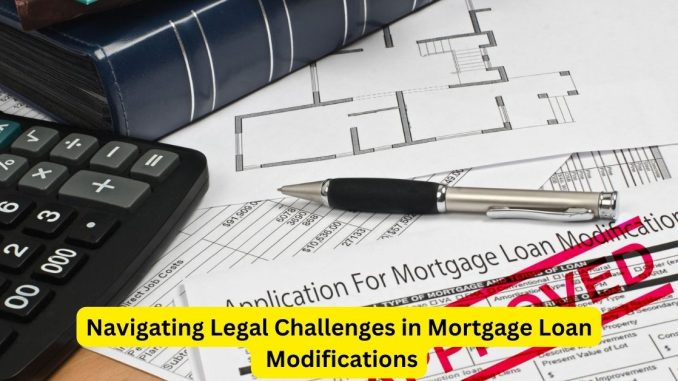
Mortgage loan modifications serve as a financial lifeline for homeowners facing hardships, offering the prospect of adjusted terms to prevent foreclosure. However, amidst the complexity of these modifications, various legal challenges often arise, necessitating careful navigation by both lenders and borrowers.
One of the primary legal hurdles in mortgage loan modifications involves ensuring compliance with regulatory frameworks. Federal and state laws impose strict guidelines on modification processes, requiring lenders to adhere to specific protocols. Failure to abide by these regulations can lead to legal repercussions, making legal expertise essential in navigating these complexities.
The issue of documentation stands as a critical aspect. Inaccurate or incomplete paperwork can render the modification invalid or lead to disputes. Attorneys specializing in real estate and mortgage law play a pivotal role in reviewing and ensuring the accuracy of documents, safeguarding both parties against legal pitfalls.
Moreover, the concept of “dual tracking” poses a legal challenge. This occurs when a lender simultaneously pursues foreclosure proceedings while considering a homeowner’s application for a loan modification. Legislation in various jurisdictions prohibits this practice, emphasizing the need for legal oversight to ensure compliance and protect homeowners’ rights.
Another legal challenge is the interpretation and application of modification terms. Ambiguities or discrepancies in the modification agreement can lead to misunderstandings or disputes between parties. Attorneys specializing in mortgage law meticulously review these terms to ensure clarity and enforceability, mitigating the risk of future conflicts.
Furthermore, the intricacies of financial regulations pose challenges. Lenders must navigate laws such as the Truth in Lending Act (TILA) and the Real Estate Settlement Procedures Act (RESPA) when modifying loans. Compliance with these statutes requires legal acumen to avoid violations and potential legal liabilities.
Additionally, the involvement of multiple stakeholders can complicate the modification process. Investors, servicers, and insurers might have divergent interests, leading to negotiations and legal complexities. Attorneys act as mediators, reconciling these conflicting interests to facilitate a mutually beneficial agreement.
Legal challenges also arise concerning the verification of borrower eligibility. Ensuring that borrowers meet the criteria for loan modifications according to specific guidelines demands meticulous scrutiny. Attorneys specializing in mortgage law play a crucial role in assessing eligibility and averting legal disputes.
In conclusion, legal challenges pervade the landscape of mortgage loan modifications, underscoring the indispensability of legal expertise in navigating these complexities. Attorneys proficient in real estate and mortgage law serve as guardians, ensuring compliance with regulations, mitigating risks, and fostering fair and legally sound agreements. Their role is instrumental in safeguarding the interests of both lenders and borrowers, ultimately facilitating successful and legally compliant mortgage loan modifications.
Leave a Reply